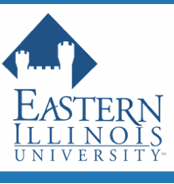Preferred Delivery
In-Person
Start Date
7-10-2022 3:00 PM
End Date
7-10-2022 4:50 PM
Document Type
Presentation
Abstract
The COVID-19 pandemic has been associated with unprecedented medical and mental health problems which have disproportionately affected those in young adulthood and those from disenfranchised and underrepresented communities (Tai et al., 2021). Creative expression activities have historically assisted individuals in addressing self-care in a way that provides opportunities for externalization and containment of uncontrollable problems (e.g. trauma, violence, consequences of systemic oppression, abuse) (Thomas & Morris, 2017). Although the promotion of self-care now occurs in many universities, few students have well-developed self-care plans (Stalnaker-Shofner et al, 2021). Creative expression self-care activities that incorporate concepts of self-compassion, emotional regulation, mindfulness, boundaries, social connectedness, and wellness practices will be highlighted in this session.
Description
Target audience:
This presentation is open to all students, faculty, and staff, especially those from diverse and underrepresented backgrounds.
Program Goals:
Participants will gain an understanding of how students from underrepresented communities have been disproportionately impacted by the pandemic. Participants will also gain an understanding of the critical nature of self-care for these students and the importance of frequent implementation of self-care and wellness strategies. Participants will identify a variety of self-care strategies for creation of an individualized self-care plan by experiencing creative expression activities.
Program Objectives:
Following the presentation, participants will be able to:
- Discuss the importance of self-care for students from underrepresented and marginalized groups.
- Identify a comprehensive approach to self-care practices.
- Create the foundation for an individualized self-care plan by experiencing creative expression activities to address self-care, wellness, and coping.
Creative Commons License

This work is licensed under a Creative Commons Attribution-Noncommercial-No Derivative Works 4.0 License.
Included in
Redefining wellness and self-care for students from diverse backgrounds
The COVID-19 pandemic has been associated with unprecedented medical and mental health problems which have disproportionately affected those in young adulthood and those from disenfranchised and underrepresented communities (Tai et al., 2021). Creative expression activities have historically assisted individuals in addressing self-care in a way that provides opportunities for externalization and containment of uncontrollable problems (e.g. trauma, violence, consequences of systemic oppression, abuse) (Thomas & Morris, 2017). Although the promotion of self-care now occurs in many universities, few students have well-developed self-care plans (Stalnaker-Shofner et al, 2021). Creative expression self-care activities that incorporate concepts of self-compassion, emotional regulation, mindfulness, boundaries, social connectedness, and wellness practices will be highlighted in this session.





Speaker Information
Dr. Angela Yoder is a licensed clinical psychologist and professor in the Department of Counseling and Higher Education. She is a registered play therapist and loves helping students from all backgrounds use creative expression as a form of self-care.
Amina Feder is a second-year graduate student in the Clinical Counseling program at EIU. They were formerly the Director of Prevention at SACIS (Sexual Assault Counseling and Information Service) providing prevention programming and training to several surrounding counties from 2015-2021. They earned their master’s degree in 2014 in Communication Studies with a focus on organizational and strategic communication. Their research has focused on educating communities on sex trafficking in the United States. In addition to their studies, they are a current board member of PFLAG, providing resources and education to individuals within the LGBTQ+ community and advocacy on a local level. They look forward to expanding their knowledge and enhancing necessary services and support to individuals historically and currently marginalized and oppressed.
Kelsey Boll is currently a 2nd year graduate student working toward a degree in clinical mental health counseling at Eastern Illinois University. Kelsey’s research interests include the Gender, Sexual and Romantic Diversity (GSRD) community and inclusive spaces, expanding on the safety and acceptance of both subject areas. Currently, Kelsey is focusing on research in self-care. In the future, Kelsey would like to explore research on ambiguous loss, and how the lack of closure influences the grieving process.